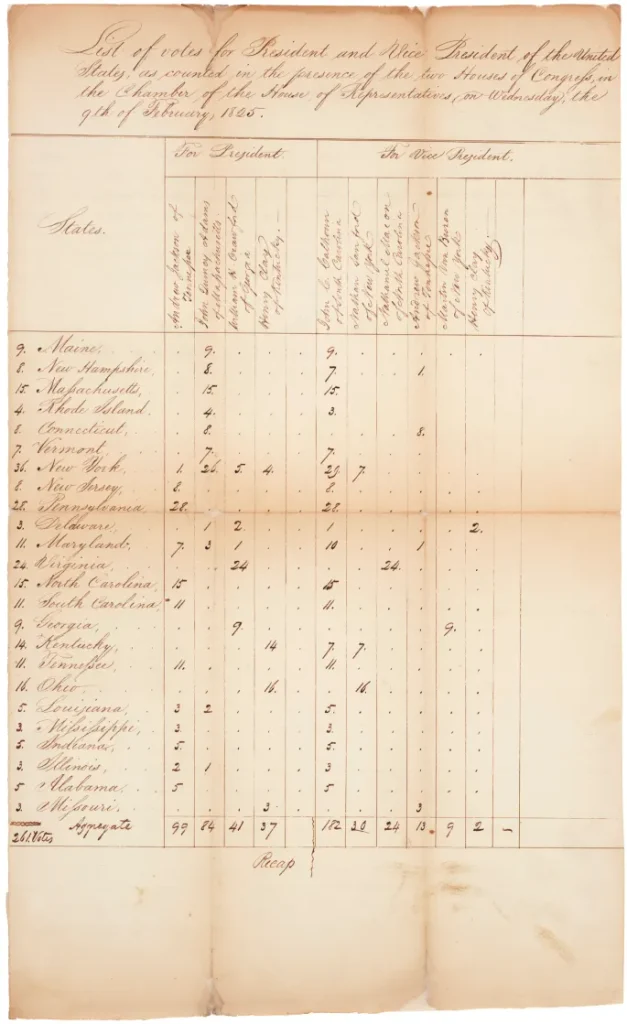While our politics seems as contentious as ever, with a Presidential election on the horizon, 199 years ago today saw a dramatic close to the 1824 election as John Quincy Adams was elected president.
After the War of 1812, the Federalist Party collapsed into irrelevance and the Democratic-Republic Party dominated American politics. During the so-called “Era of Good Feelings,” the country faced a stable period of economic and political stability. There were a few warning signs of things to come such as the Panic of 1819 saw the collapse of an interest bubble when the Second Bank of the United States tightened credit, and the Missouri Compromise of 1820 pushed off the slavery problem to a future generation. In these days, parties and state legislatures would nominate candidates and when election day came around there were still four candidates on the ballot: Andrew Jackson nominated by Tennessee, John Quincy Adams nominated by Massachusetts, William H. Crawford nominated by Congress, and Henry Clay, Sr. nominated by Kentucky. With the votes cast, members of the Electoral College met in their home states to officially elect the President and Vice President per the 12 Amendment. Both Jackson and Adams chose John C. Calhoun as their Vice Presidential pick so he easily won 182 of 260, but no candidate even broke 100 ballots for President when they needed 131.
Thankfully, the Founders planned for this situation when drafting the 12 Amendment. If no candidate wins a majority of the Presidential ballots, then the House of Representatives elects the President, and if no candidate wins a majority of the Vice Presidential ballots then the Senate elects the Vice President. When this happens, each state gets one vote in the body and their Representatives or Senators vote to decide who the one vote goes to. The House met on February 9, 1825, and voted to decide which of the top three candidates should be President: Jackson, Adams, or Crawford. New England, which had helped cause the contingent election in the first place because of the sectional divide in the country, voted for hometown Adams. Henry Clay favored Adam’s economics and convinced Kentucky, Missouri, and Ohio to vote for Adams as well. Illinois, Louisiana, Maryland, and New York all also voted for Adams, giving him the required 13 states. Clay was ultimately appointed by Adams to Secretary of State, which historically meant he was heir apparent but Jackson defeated Adams in 1828.
Though this is the only time the House has had to exercise its power to elect the President, we have come close to having it happen again. During the 2000 election, there was a chance that Florida’s votes would be rejected by Congress which would have caused no candidate to receive a majority of the votes. As most of our elections are two parties we don’t need to worry about the specter of a contingent election, but it is there if we ever need it while the Electoral College is still the way we elect the President.
To read more about the election of 1824, click the link below!







